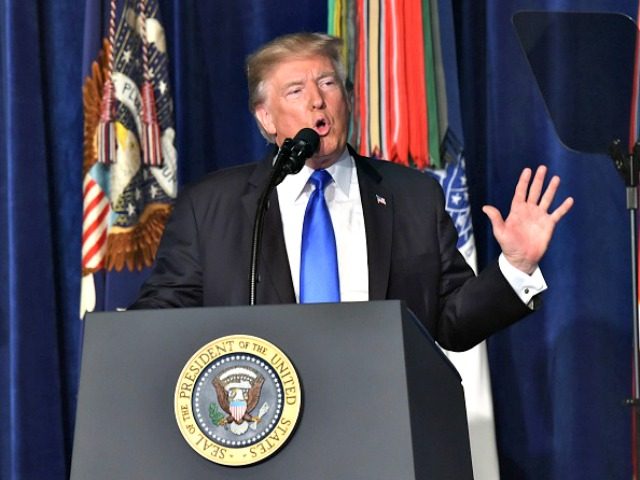Journalists and pundits greeted President Donald Trump’s Afghanistan speech with a rare chorus of cheers. Fox News and its guests were effusive in their praise; New York Times White House correspondent Maggie Haberman tweeted that Trump “gave his best speech as POTUS.”
The reason for the media’s reversal was not the content of the speech, but the fact that Trump had clearly and deliberately rejected a policy on which he had campaigned.
That is not to say Trump was wrong to make the change. His earlier calls — predating his run for president — for total withdrawal look naïve in light of the rise of the so-called Islamic State.
And, indeed, Trump acknowledged that in his speech. In an extraordinary and honest gesture of humility, Trump said: “[D]ecisions are much different when you sit behind the desk in the Oval Office, in other words, when you’re president of the United States.”
He provided three compelling reasons not to leave Afghanistan: first, the sacrifices that Americans had made thus far demanded “an honorable and enduring outcome”; second, the nation had learned from Barack Obama’s hasty withdrawal from Iraw just how dangerous a vacuum could be; and third, the U.S. still faced grave security threats from the region. All presidents change their minds; few explain clearly why they have arrived at different opinions.
And yet the speech lacked a compelling vision of what staying in Afghanistan actually meant, and what strategic goals the U.S. wanted to achieve (rather than what defeats the U.S. wanted to avoid). Trump did not need to give troop numbers, battle plans, or timelines for withdrawal, but he needed to provide an overall sense of America’s role in the region. He did not. And thus the speech was largely a retread of Obama’s policy, minus deadlines and details.
That is precisely why the media praised Trump’s speech. It affirmed Obama’s approach to Afghanistan, and thus the speech meant that the media, too — Obama’s Greek chorus for eight years — had been right not to doubt him.
Few in the media asked questions about where Trump’s policy would lead. They were satisfied that he had largely affirmed the status quo. In their applause, there was more than a hint of hope that he would do the same on other issues, too.
Above all, the media treated the speech as a victory lap in their efforts to dislodge Steve Bannon, who was widely reported to have opposed a massive surge of troops into Afghanistan.
The White House will, no doubt, enjoy the media’s temporary praise, and see it as a validation of its decisions on policy and personnel. But it will not last, and Trump has taken the risky step of allowing the media to believe they can separate him from his ideas and his voters.
Joel B. Pollak is Senior Editor-at-Large at Breitbart News. He was named one of the “most influential” people in news media in 2016. He is the co-author of How Trump Won: The Inside Story of a Revolution, is available from Regnery. Follow him on Twitter at @joelpollak.

COMMENTS
Please let us know if you're having issues with commenting.